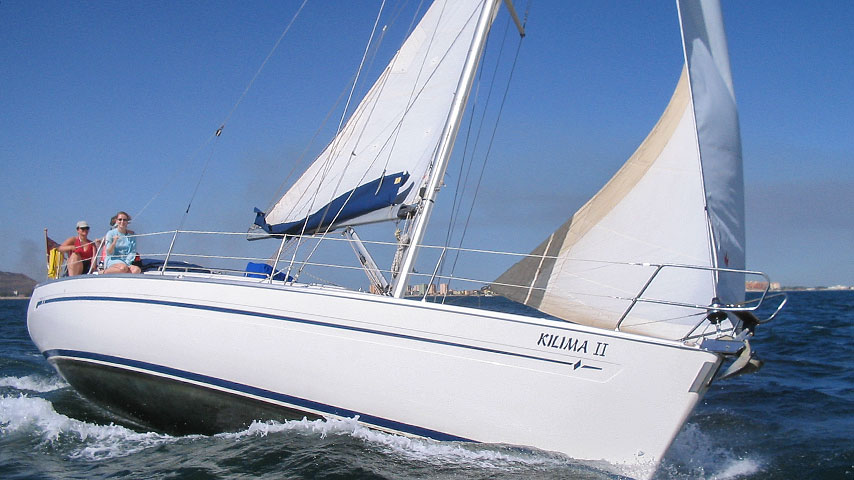
RYA Coastal Skipper and Yachtmaster Offshore Theory Syllabus
The RYA Coastal Skipper / Yachtsmaster Offshore Theory is an advanced course in navigation, meteorology and Collision Regulations for candidates wishing to do the RYA Coastal Skipper course or the Yachtmaster Coastal and Yachtmaster Offshore Preparation weeks.
Pre Course Knowledge
- Assumed knowledge to the level of RYA Day Skipper Theory – this course will allow some time for revision of the day skipper theory but if you do not have this knowledge you are unlikely to be able to assimilate all the information covered in this course in the time available
Course Syllabus
1. Position
- Dead Reckoning and Estimated Position
- Satellite derived position
- Use of waypoints to fix position
- Radar fixes
- Techniques of visual fixing
- Fixes using a mixture of position lines
- Relative accuracy of different methods of position fixing
- Areas of uncertainty
2. The Magnetic Compass
- Allowance for variation
- Change of variation with time and position
- Causes of deviation
- Compass checks for deviation, but not correction
- Allowance for deviation
- Different types of compass
3. Tides
- Causes of tides – springs and neaps
- Tide tables –sources
- Tidal levels and datum
- Standard and secondary ports
- Tidal anomalies (Solent etc.)
4. Tidal Streams
- Sources of tidal information
- Tidal stream information in sailing directions and yachtsmen’s almanacs
- Allowance for tidal streams in computing a course to steer
- Tide rips, overfalls and races
- Tidal observation buoys, beacons etc.
5. Buoyage
- IALA system buoyage in Regions A and B
- Limitations of buoys as navigational aids
6. Lights
- Characteristics
- Ranges – visual, luminous and nominal
- Rising and dipping distances
- Light lists
7. Pilotage
- Harbour regulations and control signals
- Methods of pre-planning
- Clearing lines
- Use of soundings
- Transits and leading lines
8. GNSS and Chart Plotters
- Principles of operation and limitations of use
- Raster and vector charts
- Datum
- The importance of secondary means of position fixing via an independent source and keeping a separate record of position
- The importance of paper charts
9. Echo Sounders
- Principles of operation and limitations of use
10. Logs (Speed and Distance Measuring)
- Principles of operation and limitations of use
11. Deck Log
- The importance of the log as a yacht’s official document
- Layout of log, hourly and occasional entries
12. Meteorology
- Basic terms, the Beaufort Scale
- Air masses
- Cloud types
- Weather patterns associated with pressure and frontal systems
- Sources of weather forecasts
- Ability to interpret a shipping forecast, weather fax and weather satellite information
- Land and sea breezes
- Sea fog
- Use of a barometer as a forecasting aid
13. Rules of the Road
- A sound knowledge of the International Regulations for Preventing Collisions at Sea, except Annexes 1 and 3
14. Safety at Sea
- Personal safety, use of life jackets, safety harnesses and life lines
- Fire prevention and firefighting
- Distress signals
- Coastguard and Boat Safety Scheme
- Preparation for heavy weather
- Life rafts and helicopter rescue
- Understanding of capabilities of vessel and basic knowledge of stability
15. Navigation in Restricted Visibility
- Precautions to be taken in fog
- Limitations to safe navigation imposed by fog
- Navigation strategy in poor visibility
16. Passage Planning
- Preparation of charts and notebook for route planning and for use on passage at sea
- Customs regulations as they apply to yachts
- Routine for navigating in coastal waters
- Strategy for course laying
- Use of and visual confirmation of waypoints and routes
- Use of weather forecast information for passage planning strategy
- Sources of local and national regulations
17. Marine Environment
- The responsibility to minimise pollution and protect the marine environment